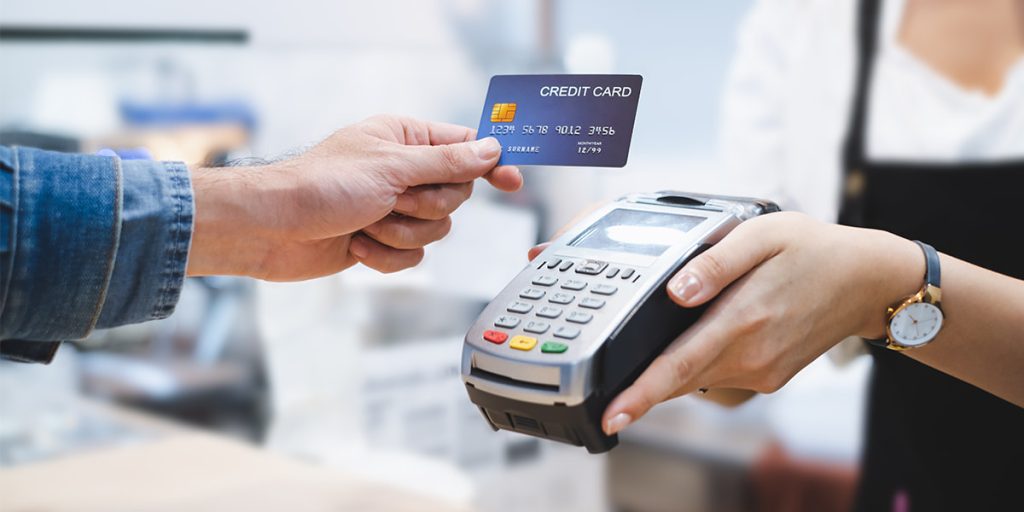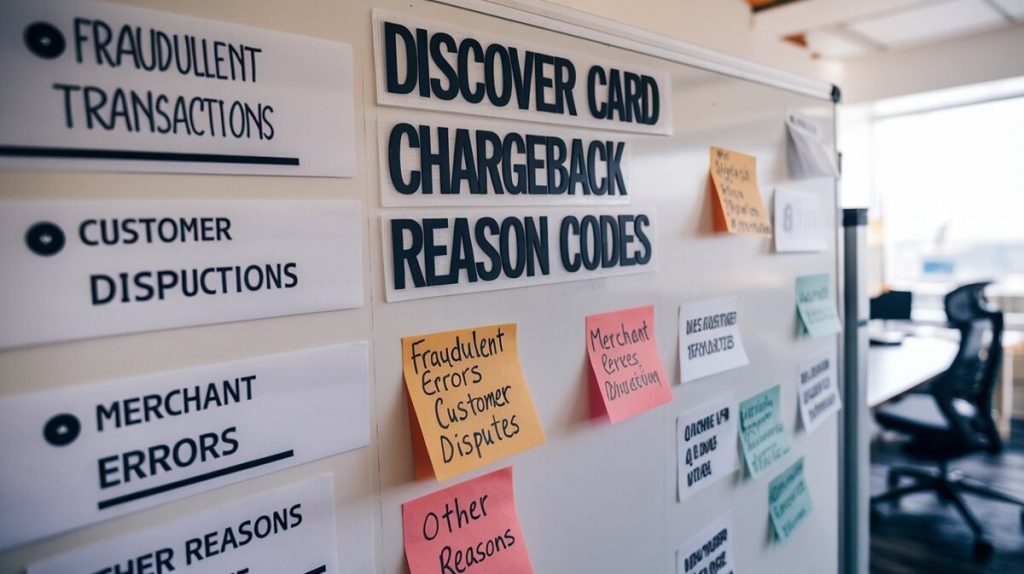Introduction
Chargebacks are a crucial part of credit card transactions, providing a mechanism for cardholders to dispute transactions. For merchants, understanding chargeback reason codes is essential to managing disputes and minimizing losses. Discover Card, as a significant credit card network, has specific chargeback reason codes that merchants need to know to handle disputes effectively.
This guide delves into Discover Card chargeback reason codes, categorizing them, explaining common scenarios, and offering best practices for handling and preventing disputes.
What Are Chargeback Reason Codes?
Chargeback reason codes are identifiers assigned to a chargeback that specify why a cardholder has disputed a transaction. These codes standardize the dispute process, aiding merchants, cardholders, and payment processors in understanding the nature of the dispute.
Categories of Discover Chargeback Reason Codes
Discover Card categorizes its chargeback reason codes into four areas: Fraud-Related Codes, Authorization Errors, Processing Errors, and Service Disputes. Below is a detailed look at each category.
1. Fraud-Related Codes
Fraud-related chargebacks occur when a cardholder claims that a transaction was unauthorized.
- UA01: Fraud – Card Present
- UA02: Fraud – Card Not Present
- UA05: Fraud – Chip Counterfeit Transaction
Prevention:
- Use fraud detection tools like Address Verification Service (AVS) and CVV verification.
- Implement 3D Secure authentication for online transactions.
- Regularly monitor transactions for unusual activity.
Table 1: Fraud-Related Discover Chargeback Codes
| Code | Description | Common Causes | Prevention Strategies |
|---|---|---|---|
| UA01 | Fraud – Card Present | Stolen card used in a physical store | Use EMV chip terminals and PIN verification |
| UA02 | Fraud – Card Not Present | Stolen card details used online | Implement 3D Secure, AVS, and CVV verification |
| UA05 | Fraud – Chip Counterfeit | Counterfeit chip used for transaction | Ensure EMV chip readers are up to date |

2. Authorization Errors
These chargebacks arise when there’s an issue with the transaction authorization process.
- NA: No Authorization
- DA: Declined Authorization
- EX: Expired Card
Prevention:
- Always obtain authorization before completing a transaction.
- Verify the card’s expiration date during processing.
- Avoid forcing transactions on a declined card.
Table 2: Authorization-Related Discover Chargeback Codes
| Code | Description | Common Causes | Prevention Strategies |
|---|---|---|---|
| NA | No Authorization | Transaction processed without authorization | Always request and verify authorization |
| DA | Declined Authorization | Attempt to process a declined transaction | Discontinue transaction if declined, request another payment method |
| EX | Expired Card | Card expired before the transaction date | Always verify the expiration date during processing |
3. Processing Errors
Processing errors occur when there is a mistake in handling the transaction.
- IN: Invalid Card Number
- LP: Late Presentment
Prevention:
- Ensure card details are accurate before processing.
- Submit transactions promptly to avoid late presentment.
Table 3: Processing Error Discover Chargeback Codes
| Code | Description | Common Causes | Prevention Strategies |
|---|---|---|---|
| IN | Invalid Card Number | Incorrect card number entered | Verify card details during transaction |
| LP | Late Presentment | Delay in processing transaction | Process transactions on the day of the sale |
Service Disputes
Service disputes are common chargeback reasons and occur when a customer claims they didn’t receive the goods or services as expected.
- RG: Non-Receipt of Goods or Services
- RM: Quality Discrepancy
- PM: Paid by Other Means
Prevention:
- Communicate clearly about shipping and delivery times.
- Ensure product descriptions match what is delivered.
- Confirm payment methods before completing a transaction to avoid double billing.
Time Limits and Best Practices for Disputes
For Discover Card, the cardholder usually has 120 days from the transaction date to file a dispute. Merchants should respond promptly, ideally within the same timeframe.
Best Practices:
- Maintain accurate transaction records.
- Respond swiftly to avoid losing disputes due to non-response.
- Train staff on proper transaction handling to reduce disputes.

How to Handle a Discover Chargeback
When notified of a chargeback:
- Review the reason code to understand the dispute.
- Gather relevant documentation, like receipts and proof of delivery.
- Determine if the chargeback is legitimate. If it is, accept and process the refund. If not, prepare a defense.
- Submit a response through your payment processor’s chargeback system, including all supporting evidence.
Implementing Best Practices with Merchanto.org
For merchants looking to reduce chargebacks, partnering with Merchanto.org can be valuable. As an official partner of VISA and MasterCard in the chargeback prevention sector, Merchanto.org offers tools and services to help merchants minimize disputes. For more information, visit Merchanto.org.
Conclusion
Understanding and managing Discover Card chargeback reason codes is essential for any merchant. By familiarizing yourself with these codes and following the best practices outlined, you can reduce the risk of chargebacks and protect your revenue.
Chargebacks offer an opportunity to improve operations and prevent future disputes. Stay proactive and use the right tools and partners to ensure your business remains secure in the complex landscape of credit card transactions.
Additional Resources
For more detailed information on chargeback management, refer to the official documentation from VISA, MasterCard, and other reputable payment processors like Checkout.com, Stripe.com, and Braintree.com.
Table 4: Summary of Discover Chargeback Codes and Prevention Strategies
| Category | Codes | Key Prevention Strategies |
|---|---|---|
| Fraud-Related | UA01, UA02, UA05 | Implement fraud detection tools, monitor transactions |
| Authorization Errors | NA, DA, EX | Always obtain authorization, verify card details |
| Processing Errors | IN, LP | Ensure accurate card details, process transactions promptly |
| Service Disputes | RG, RM, PM | Clear communication, accurate product descriptions |
By following these guidelines and leveraging support from experienced partners like Merchanto.org, you can effectively manage and mitigate the impact of chargebacks on your business.



